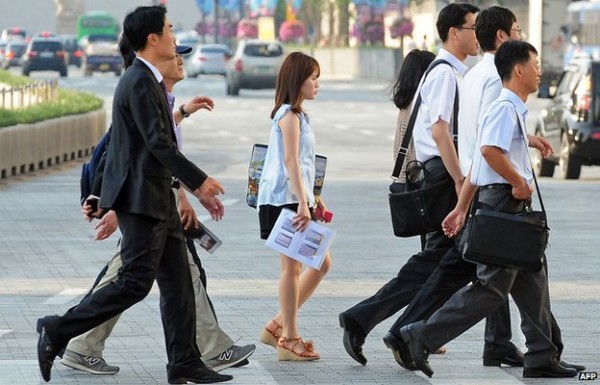by JAMES S. KIM
An expelled Cornell University student facing more than $100,000 in “retroactively rescinded grants” and other fees is suing the school after she was forced to leave due to an application dispute. The student also claims she was unfairly barred from appealing the ruling, according to the Cornell Daily Sun.
According to the university, Hyuna Choi, who applied to transfer to Cornell in 2012, failed to note on her application that she attended a community college for a semester back in 2003. Last year, the university found her “guilty of furnishing false information” to the College of Agriculture and Life Sciences and expelled her in October. A few months later, the school told Choi to pay back the financial aid she had received and said it would hold her transcript until the payment was made.
The original transcript issue goes back a good number of years. After graduating high school in South Korea, Choi immediately moved to California with the intention of attending medical school. She attended Glendale Community College for a semester and also took on a day job that would provide her a path to citizenship. However, she had to withdraw from her classes because her job asked her to focus on her work, according to her attorney, Sujata Gibson.
Although Choi received “Ws” on her transcript from Glendale, she was able to finish those classes at Tidewater Community College years later. She did not, however, include the Glendale transcript as part of her application to Cornell when she was accepted in 2012.
In spring 2013, when Choi was at the College of Agriculture and Life Sciences at Cornell (CALS), she was accused of allowing a fellow student to cheat off of her during an exam. Court documents said Choi initially denied the allegation, but the campus judicial system found her guilty.
When Choi appealed the decision, Cornell lawyer Nelson Roth said CALS began to investigate statements she made during the proceedings. It was in the process of this review that they discovered discrepancies in the transcripts Choi submitted along with her application to CALS and another college at Cornell.
Roth noted the signatures and fonts on the two transcripts were different, even though they had purportedly been signed by the same person on the same date. The grades also didn’t match up, and after further investigation, the university found the missing Glendale transcript, according to CALS Dean Kathryn Boor.
Choi learned from Boor in October 2013 that her admission and enrollment had been “canceled, effective immediately.” In an email, Boor told Choi that all applicants must “report all college attendances beginning with [their] first year of college.”
“The Admissions Committee must have complete information about other college attendance to make an informed decision … Your failure to provide a complete and honest answer deprived the Committee of this material information,” Boor continued in the email, according to court documents.
In January 2014, the school’s financial aid office contacted Choi, saying she had “misappropriated university funds” and that the financial aid she had received had been rescinded. She was told to pay $67,805.50 back immediately, and until she did, her transcripts would be held. A month later, the office sent another letter that over $13,000 in “internal collection costs” would be added to the bill.
Choi was not allowed to appeal the decision, as the university had canceled her admission and enrollment. She was no longer considered a student, and because she was “wrongfully accepted,” according to Cornell’s Judicial Administrator Mary Beth Grant, Choi never really was a student. That meant Choi could not appeal through the campus judicial system.
Choi’s attorney argued in court that since her client did not receive any grades for her work at Glendale, “it is unclear that any of these transcripts would have made a material difference” in her acceptance. The lawsuit also said it was unfair she could not appeal and that the alleged violations were “wildly disproportionate and harsh.” Gibson said Choi was “inarguably” a student at the time she was forced out, and the university was obliged to allow her an appeal.
“If these actions go unremedied, everything that [Choi] has spent the better part of the last 20 years working towards academically will be for naught, and her future career prospects and good name seriously marred,” the lawsuit reads.
Cornell followed with a motion to dismiss the lawsuit, and the university got a partial victory last Friday. Judge Robert C. Mulvey ruled that only part of the lawsuit could proceed.
“We’re extremely pleased with Justice Mulvey’s decision and look forward to the prompt disposition of Choi’s sole remaining claim,” said Joel Malina, vice president for university relations.
Image via Wikipedia Commons









